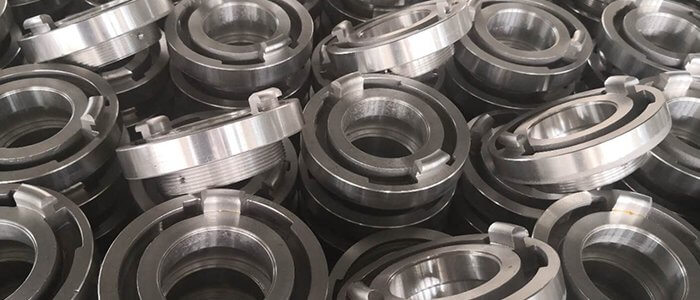Introduction
The precision casting industry has experienced remarkable growth and innovation in recent years. This manufacturing sector plays a crucial role in producing high-quality components for various industries, from aerospace to automotive, energy, and more. The global precision casting industry has evolved to meet the rising demand for intricate, near-net-shape metal components, often made from a wide range of materials.
China: Leading the Way in Production
China continues to dominate the global precision casting industry, producing a vast array of castings in various materials. China’s precision casting sector is characterized by the production of components for the automotive, aerospace, and power generation industries. Key metals used in Chinese precision casting include aluminum, steel, and superalloys like Inconel and Hastelloy. With advancements in technology and a highly skilled labor force, China’s precision casting capabilities are unparalleled.

United States: Quality and Expertise
The United States boasts a strong precision casting industry with a focus on producing high-quality components for aerospace and defense applications. Investment casting, often used in the production of aircraft engine components and medical devices, is a prevalent method in the U.S. The main metals utilized include titanium, stainless steel, and nickel-based alloys. The U.S. maintains a competitive edge through a combination of expertise, innovation, and stringent quality control.
India: Emerging as a Precision Casting Hub
India has emerged as a significant player in the global precision casting industry, leveraging its abundant skilled workforce and cost-effective production capabilities. The country’s precision casting industry caters to a wide range of sectors, including automotive, railways, and industrial machinery. Metals such as steel, aluminum, and bronze are commonly used in precision casting processes. India’s precision casting industry continues to grow, offering cost-effective solutions to global markets.
Germany: Precision and Engineering Excellence
Germany is renowned for its precision engineering, and its precision casting industry is no exception. The country specializes in producing intricate castings for the automotive and mechanical engineering sectors. High-quality steel, particularly stainless and tool steel, are primary materials used in German precision casting. German manufacturers are known for their attention to detail, precision, and adherence to strict quality standards.
Japan: Niche Excellence
Japan has a niche but highly advanced precision casting industry. The country focuses on producing components for industries like electronics, healthcare, and aerospace. Japanese precision casting predominantly employs materials like superalloys, titanium, and high-strength aluminum. Japanese manufacturers are known for their pursuit of perfection and meticulous craftsmanship.
South Korea: Innovation and Growth
South Korea has seen significant growth in its precision casting industry, thanks to its focus on technology-driven innovation. The country produces castings for applications in the automotive, aerospace, and energy sectors. Steel, aluminum, and copper-based alloys are commonly used metals in South Korean precision casting. South Korean manufacturers are gaining recognition for their commitment to innovation and expanding their market reach.
Conclusion
The global precision casting industry is a diverse landscape, with each country carving its niche based on expertise, materials, and focus industries. As the world’s demand for high-quality, near-net-shape components continues to rise, these countries are at the forefront of innovation and excellence. With a continued emphasis on precision, quality, and adaptability, the precision casting industry remains poised for further growth and technological advancements. This sector will continue to play a pivotal role in shaping the industries of the future.
Ceramic foam filter is a specialized tool used in the precision casting industry to improve the quality of metal castings, particularly those made from materials like steel, aluminum, and other non-ferrous metals. These filters are essential for ensuring that the final casting is free from impurities and defects, resulting in high-quality, near-net-shape components.


